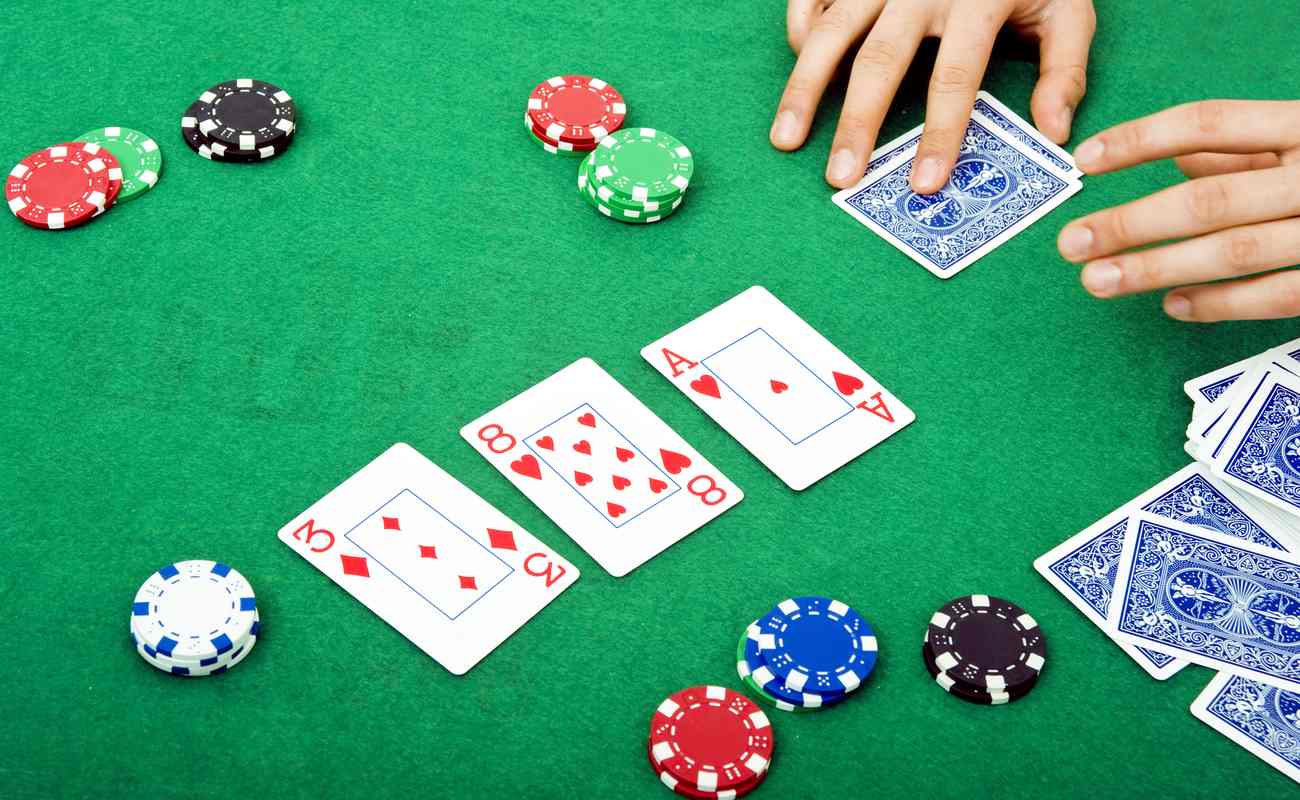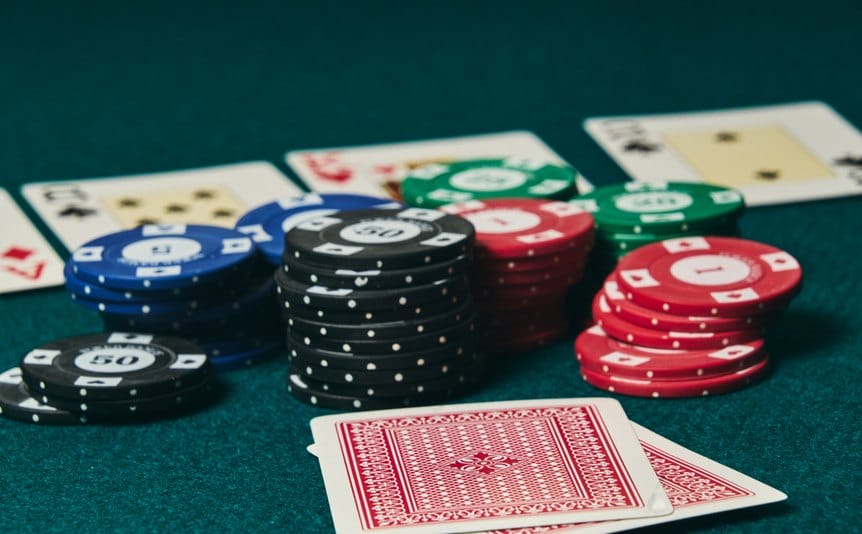
One of the best skills you can master to improve your odds of winning when you play poker online is the ability to bluff your opponents. This blog post explores what bluffing is, why you should use it, and share tips that you can use to outsmart your opponents in offline and online poker.
What Does Bluffing Mean in Poker?
A good poker face is one of the most important aspects of a successful poker game. It’s relaxing your body language and keeping a blank expression so that you’re opponents won’t be able to tell what you’re feeling and, consequently, how strong or weak your hand is. In poker, a bluff can take two opposing forms. First, it’s making an opponent believe they have a better hand than you and luring them into a trap where you beat them and claim the pot. The second type of bluff is where you make an opponent believe you have a much stronger hand than they do, and they fold as a result.
Why Use a Bluff in Poker Games?
No matter how you use a bluff, it’s simply a tool to improve your odds of winning (as is using math skills to improve your chance of success), but do you need to master it if you’re already winning quite often anyway? While you may be able to beat some players with solid poker fundamentals, without the bluff in your poker-gaming arsenal, you risk becoming predictable and easy to read. Without some level of deception, skilled players will easily tell that you’re only playing a particular hand because it’s strong and that you’re likely to win. Bluffing forces other players to stay on their toes and keeps them guessing how strong your hand is — and then you can make them chip in to see it.
How Often To Bluff in Poker Games
There is no straight answer to this question. Poker games have a lot of variables, so there isn’t a fixed formula for how to bluff; it’s heavily dependent on the dynamics of the game you’re in and the players you’re up against. There are a lot of factors you will need to consider, from the habits your opponents have and the size of your stack to the stage of the game and your table position. So, adaptability is one of your most valuable assets if you’re trying to figure out when to bluff in a poker game.
For example, if you’re up against a loose, recreational player who eagerly participates in many hands, bluffing in poker isn’t always necessary. They tend to prefer a simple style of play. So, going overboard with your poker bluffs can be counterproductive because a more straightforward strategy can still get you the results you’re after.
Conversely, you also get players known as the fit-or-fold type who will readily give up on their hands and fold if their cards don’t align with the community cards. Bluffing against these players can often be profitable because they’re more inclined to abandon their hands if it looks like the board doesn’t favor them.
The key takeaway here is that adaptability is your greatest asset. There’s no one-size-fits-all bluffing strategy because each game unfolds differently and is uniquely influenced by the players at the table for that specific game.
Calling A Bluff
The expression “I’m calling your bluff” often finds its way into everyday conversations. It’s a challenge – you’re saying that you know someone is not being upfront about their intentions, and you’re challenging them to follow through because you suspect they won’t.
The thing is, in poker games, you very rarely know for sure that someone is bluffing. You can learn how to read poker tells to make spotting bluffs easier. However, unless you’re terrific at poker math and know your opponent’s hand isn’t what they’re leading you to believe it is, there will always be some uncertainty. Learning to navigate this uncertainty, however, can significantly improve your decision-making at the table.
If you want to know how to call a bluff in poker games and improve your accuracy in spotting bluffs, you need to pay attention to your opponents’ tells and the unique details of the game you’re in. Assess what you see and think of how you can use it to your advantage. Use your knowledge of the most common bluffs in poker games and take every detail of your game into account to know you’re making an informed decision when the stakes are high.
Poker Bluffing Tips
To improve your online poker tournament strategy or just boost your chances of a win in a quick casual game and become a more successful poker player, here are a few tips on how to bluff in poker to help you work on deceiving your opponents.
Bet Big To Steal the Blinds Against Tight Players
Tight players, or players who only bet if they have strong hands, can be easy to bluff preflop. Once you’ve identified that a player is conservative and will only bet when they have a strong hand, raise the stakes to force them off the blinds and claim them for yourself. And while the blinds may not be all that much, stealing enough of them over time can add up to a reasonable amount of winnings.
Take Advantage of Continuation Betting
Whether you’re playing in-person or real poker online, a continuation bet simply follows a preflop wager with a bet in the next round on the flop. This bluff signals to other players that the flop cards support your hand, even if they don’t make your hand better at all.
Raise on the Flop
Take advantage of continuation betting even more by raising on the flop. Like a continuation bet bluff, this signals to your opponents that you have a strong hand but takes it one step further since you are “so confident” in the strength of your hand that you raised the previous wager.
Float the Flop

If another player makes a continuation bet, call their bet before the turn. This will allow you to bluff on the turn and claim the pot. However, this bluff is usually only recommended under specific circumstances.
You need to make sure you’re in position (the last player to act in a round) to gain the most value out of this move. Otherwise, it won’t be as strong, especially against a player who regularly bets preflop and follows up with a continuation bet.
Also, this strategy isn’t as useful if you have more than one opponent, and better players will call you on your bluff, so make sure you’ve correctly sized up your opponent’s skill level before you attempt to pull this off at a casual game or online poker tournament.
Give Them “Both Barrels”
Following a continuation bet with another bet when you’re bluffing is called double-barrelling. This is because your first bet is the “first barrel,” while your second bet is the “second barrel.” The double-barrelled bluff is incredibly potent when a high-value turn card, like an ace, is revealed. This is because you’re more likely to fool your opponent into thinking you have a strong hand than if it was a lower-value card.
Use a “3-Bet”
The term “3-bet” may be a bit misleading to those who are hearing it for the first time, as it’s not apparent that it involves three bets. Most commonly, it refers to two raises occurring before the flop, but this is considered a “3-bet” because the big blind is technically the first wager. The reason why this is a powerful bluffing tool is because a player that raises after the first raise usually has a strong hand, particularly preflop.
A 3-bet is only recommended with a weaker hand that has the potential to become a good hand as more community cards are revealed. If the hand is terrible and has no late-game potential, 3-betting is a bad idea.
Refine Your Poker Bluffing Strategy by Playing Poker at Borgata Online
Of course, one of the best ways to develop your bluffing skills is to play poker online to put in some practice. If you enjoy playing casual poker games, online poker tournaments, or reading up on how to improve your game with the latest poker tournament tips, you can’t go wrong with Borgata Online. You can also enhance your understanding of the game with Borgata Online’s invaluable online poker guide to make sure you understand the rules of the game.
When you are ready, enjoy the best live poker online when you register at Borgata Online.
